
Baghdad: The Cradle of Islamic Civilization
Baghdad, the capital city of Iraq, is a place where history, culture, and modernity blend seamlessly. Founded in the 8th century, Baghdad was once the heart of the Islamic Golden Age, a period of remarkable achievements in science, philosophy, and art. Today, it stands as a testament to its rich past while embracing the future. Discover the architectural splendor of the Abbasid Caliphate at the Al-Mustansiriya School, one of the oldest universities in the world. Wander through the bustling markets of Al-Mutanabbi Street, famous for its bookshops and vibrant cultural scene. The Iraqi Museum offers a glimpse into the ancient civilizations that once thrived in Mesopotamia, with artifacts dating back thousands of years. For a taste of local life, explore the traditional souks and sample Iraqi cuisine, known for its flavorful dishes like kebabs, biryani, and masgouf. The Tigris River, winding through the heart of the city, provides a scenic backdrop for leisurely boat rides and evening strolls. Despite its turbulent recent history, Baghdad's spirit of resilience and hospitality continues to shine, making it a unique and enriching destination for travelers.
Local tips in Baghdad
- Visit the Iraqi Museum early in the morning to avoid crowds and have more time to explore the exhibits.
- Dress modestly and respect local customs, especially when visiting religious and historic sites.
- Hire a local guide to gain deeper insights into the history and culture of Baghdad.
- Try the local coffee and tea at traditional cafes for an authentic taste of Baghdad's social culture.
- Be cautious and stay updated on travel advisories for the latest safety information.
Neighbourhoods in Baghdad
Baghdad: The Cradle of Islamic Civilization
Baghdad, the capital city of Iraq, is a place where history, culture, and modernity blend seamlessly. Founded in the 8th century, Baghdad was once the heart of the Islamic Golden Age, a period of remarkable achievements in science, philosophy, and art. Today, it stands as a testament to its rich past while embracing the future. Discover the architectural splendor of the Abbasid Caliphate at the Al-Mustansiriya School, one of the oldest universities in the world. Wander through the bustling markets of Al-Mutanabbi Street, famous for its bookshops and vibrant cultural scene. The Iraqi Museum offers a glimpse into the ancient civilizations that once thrived in Mesopotamia, with artifacts dating back thousands of years. For a taste of local life, explore the traditional souks and sample Iraqi cuisine, known for its flavorful dishes like kebabs, biryani, and masgouf. The Tigris River, winding through the heart of the city, provides a scenic backdrop for leisurely boat rides and evening strolls. Despite its turbulent recent history, Baghdad's spirit of resilience and hospitality continues to shine, making it a unique and enriching destination for travelers.
When is the best time to go to Baghdad?
Iconic landmarks you can’t miss
Al-Zawraa Park
Escape to Baghdad's largest park: Al-Zawraa, a green haven with a zoo, amusement rides, gardens, and a peaceful atmosphere for all.
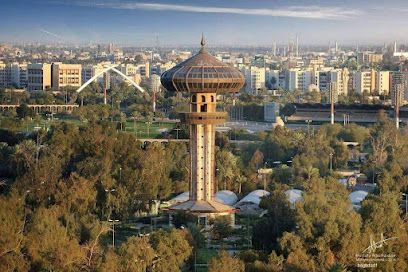
Baghdad Island Park
Escape to Baghdad Island Park: A green oasis in the heart of the city with gardens, recreation, and cultural events on the Tigris River.
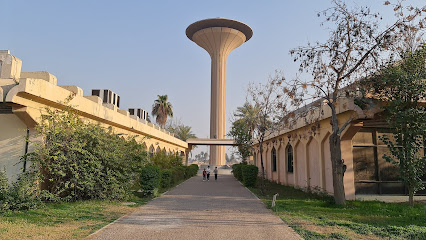
Zoo - Zawraa Park
Discover diverse wildlife and tranquil gardens at Baghdad's Zawraa Park Zoo, a revitalized oasis for families and nature enthusiasts.
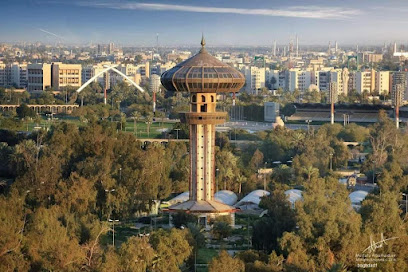
Buratha Mosque
Explore the spiritual and historical depths of Baghdad at the revered Buratha Mosque, a site of significance for both Muslims and Christians.
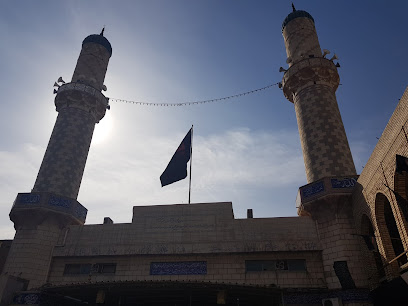
Martyr Monument
A poignant Baghdad landmark honoring Iraqi martyrs, featuring a stunning split turquoise dome and reflective spaces.
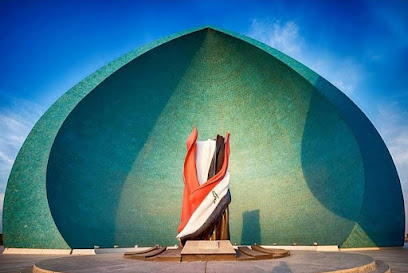
Saving Iraqi Culture Monument
A powerful symbol of Iraq's cultural resilience, the Saving Iraqi Culture Monument in Baghdad honors the nation's rich heritage and enduring spirit.
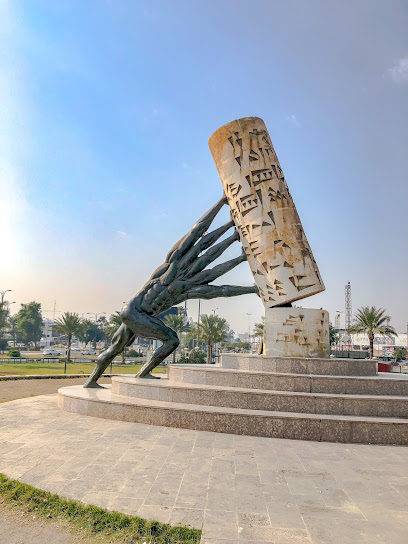
Alsebaa Square
Discover Alsebaa Square in Baghdad: a vibrant park offering a peaceful retreat and a taste of Iraqi culture.
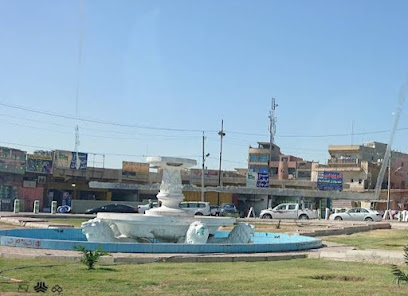
Tahrir Monument
Visit the Tahrir Monument in Baghdad's Liberation Square, a powerful symbol of Iraq's independence and a testament to the nation's rich history.
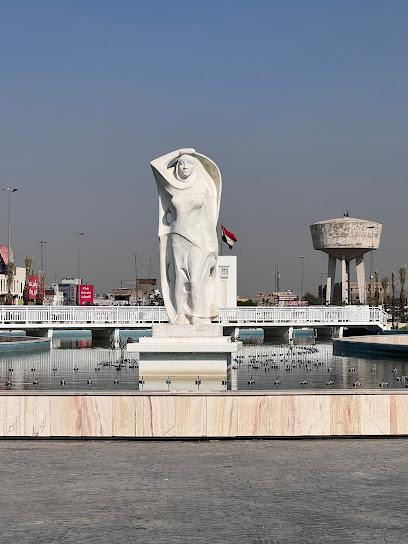
Liberation Square, Baghdad
Explore Liberation Square in Baghdad, a vibrant park filled with history, culture, and the spirit of modern Iraq.
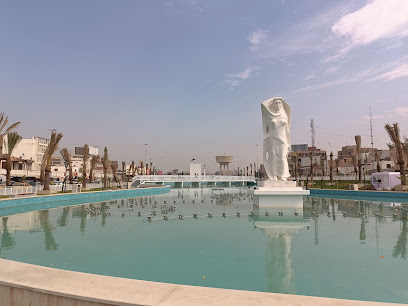
المتنبي مستنصر
Explore Baghdad's historic Al-Mutanabbi Street: a vibrant hub of literature, culture, and intellectual exchange in the heart of the city.
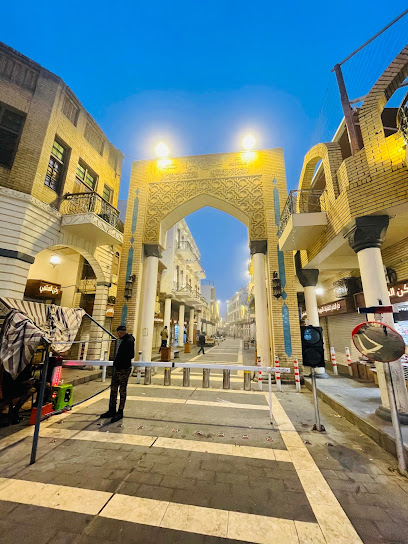
Unknown Soldier Monument
A poignant Baghdad landmark honoring Iraq's fallen soldiers, featuring unique architecture and an underground museum.
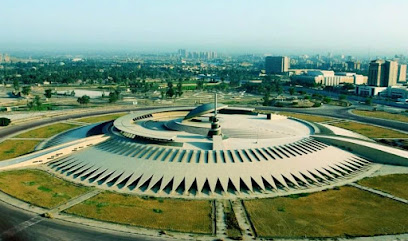
Umm Al-Qura Mosque
Explore Baghdad's Umm Al-Qura Mosque: A landmark of faith, history, and architectural symbolism in the heart of Iraq.
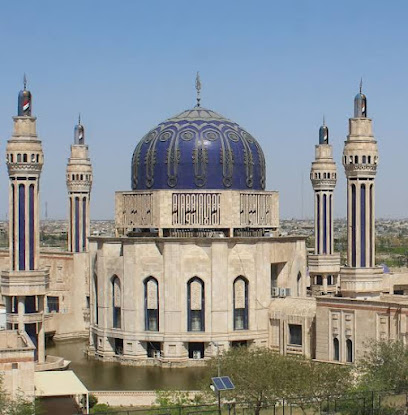
Baghdad Tower
Experience panoramic views of Baghdad from this iconic telecommunications tower, a symbol of the city's resilience and progress.
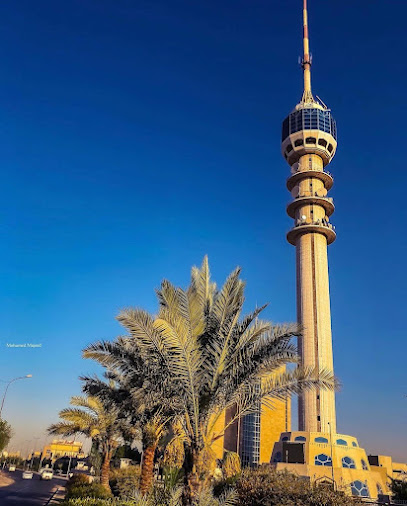
Victory Arch
A monumental landmark in Baghdad, commemorating the Iran-Iraq War with its iconic crossed swords and outstretched hands.
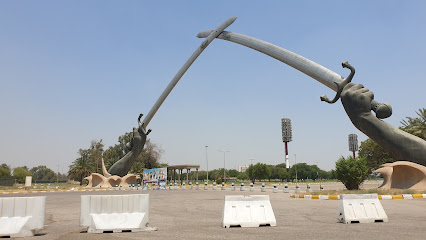
Khan Murjan
Explore Khan Murjan, Baghdad's historical caravanserai, where ancient architecture meets vibrant culture and local crafts.
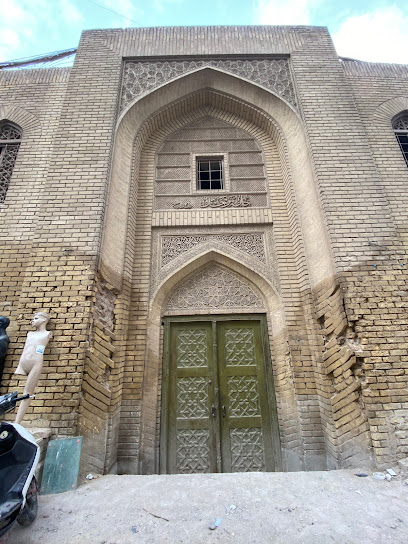
Unmissable attractions to see
Al-Zawraa Park
Escape to Baghdad's largest park! Enjoy gardens, a zoo, amusement rides, and family fun in this green oasis.
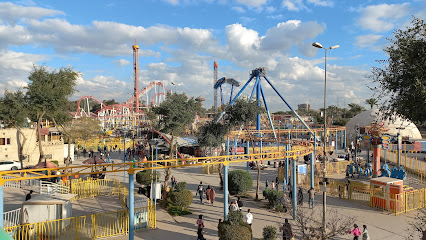
Baghdad Island Park
Escape to Baghdad's green oasis: Baghdad Island Park offers tranquility, recreation, and cultural experiences along the Tigris River.
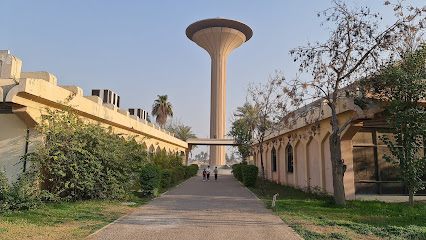
Zoo - Zawraa Park
Discover diverse wildlife in the heart of Baghdad at Zawraa Park Zoo, a family-friendly destination within the city's largest park.
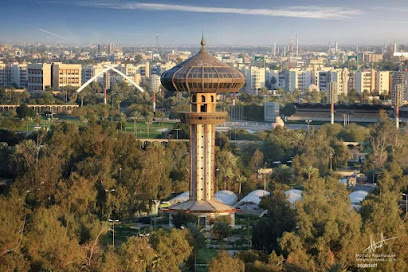
Abu Nuwas Park
Discover tranquility in Baghdad at Abu Nuwas Park, a scenic riverside escape offering lush gardens, peaceful paths, and cultural experiences.
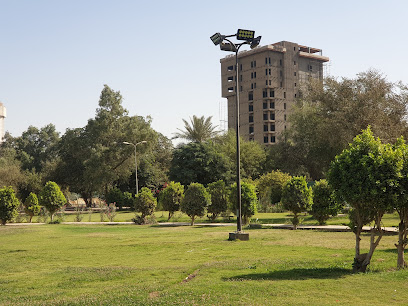
Buratha Mosque
Explore Baghdad's Buratha Mosque, a historic sanctuary with stunning architecture, serene gardens, and a rich tapestry of Islamic and Christian heritage.
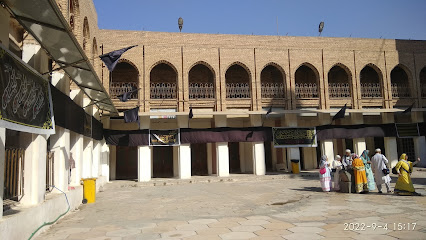
Martyr Monument
A poignant Baghdad landmark honoring Iraqi martyrs, featuring a stunning turquoise dome and tranquil memorial space.
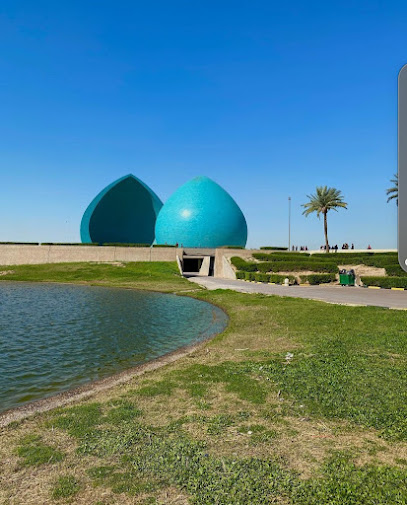
Baghdad Renaissance
Experience Baghdad's resurgence: A blend of ancient history and modern aspirations in the heart of Iraq.
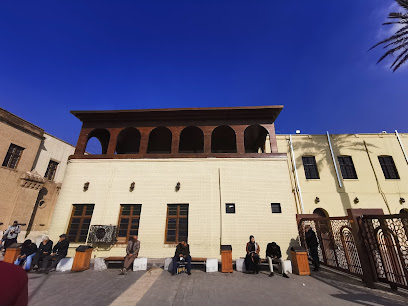
Saving Iraqi Culture Monument
A symbol of resilience in Baghdad, the Saving Iraqi Culture Monument honors Iraq's rich heritage and the collective effort to preserve its cultural identity.
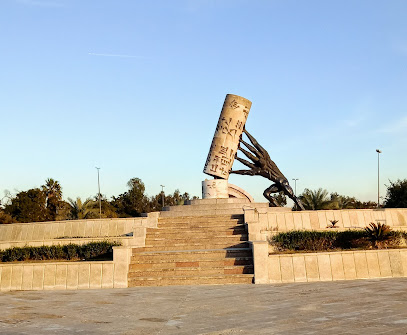
Sarafiya Bridge
Experience the iconic Sarafiya Bridge in Baghdad: a historic landmark offering stunning views of the Tigris River and a glimpse into the city's soul.
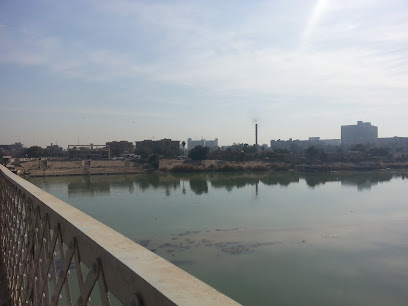
Alsebaa Square
Discover Alsebaa Square in Baghdad: A vibrant park offering a peaceful escape and a taste of Iraqi culture.
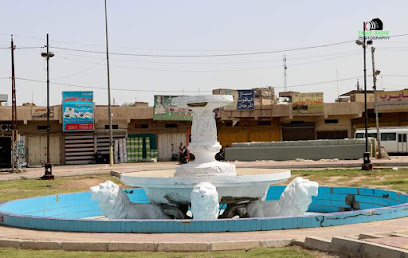
Liberation Square, Baghdad
Explore Liberation Square in Baghdad, a vibrant hub of history, culture, and the resilient spirit of Iraq, with the iconic Freedom Monument.
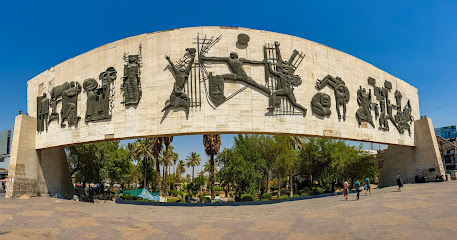
Unknown Soldier Monument
A poignant Baghdad landmark honoring Iraq's fallen soldiers, featuring unique architecture and a reflective underground museum.
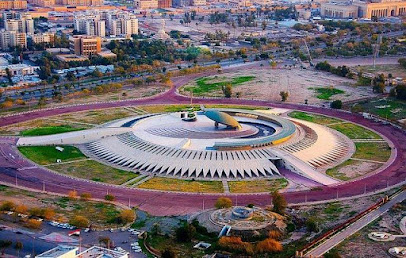
Haydar-Khana Mosque
Discover Baghdad's Haydar-Khana Mosque: A historic landmark with stunning Ottoman architecture and a legacy of Iraqi resilience.
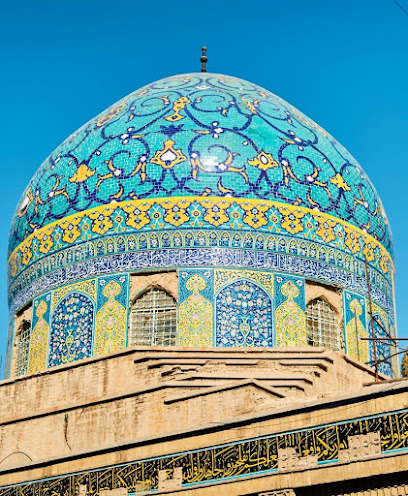
الباب الشرقي
Explore Baghdad's historic heart at Bab Al-Sharqi: vibrant markets, cultural treasures, and a taste of authentic Iraqi life.
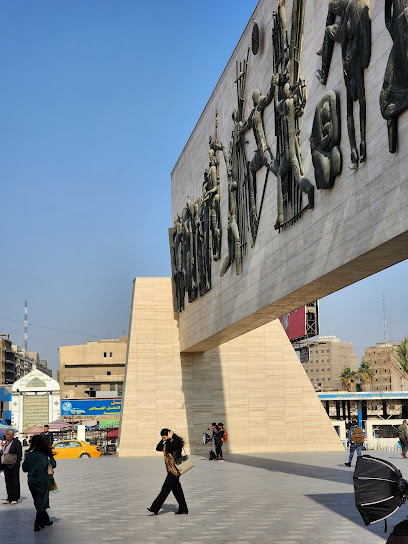
Baghdad Tower
Experience Baghdad from above at the iconic Baghdad Tower, offering panoramic views and a glimpse into the city's enduring spirit.

Essential places to dine
Pachi Pizza and Pasta
Indulge in authentic Italian cuisine at Pachi Pizza and Pasta, where delicious flavors meet a welcoming atmosphere in Baghdad.
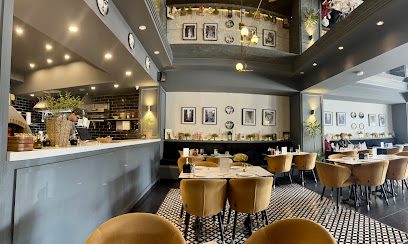
Oyoon Baghdad Restaurants
Discover authentic Iraqi cuisine at Oyoon Baghdad Restaurants, where tradition meets taste in every delightful dish.
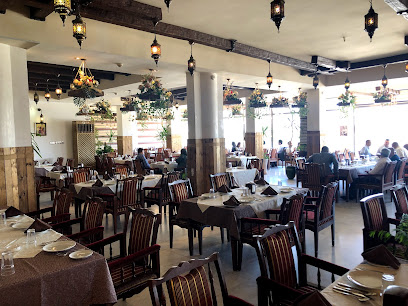
Barley Restaurant - karada
Experience authentic Iraqi flavors at Barley Restaurant in Baghdad, where traditional cuisine meets modern dining.
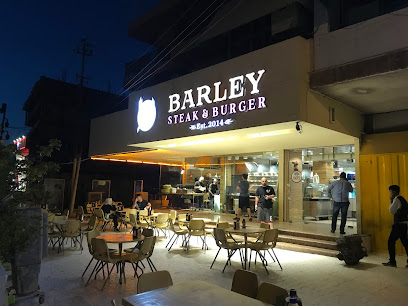
Restaurant Beeston Samad
Experience authentic Iraqi cuisine at Restaurant Beeston Samad in Baghdad's Mansour district, where tradition meets taste in every dish.
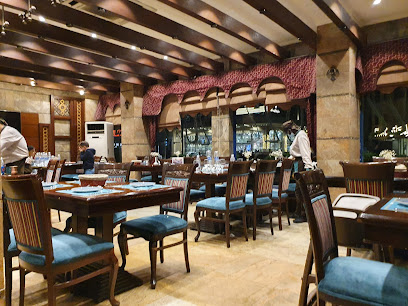
Samad Restaurant
Savor authentic Iraqi meat dishes in an inviting setting at Samad Restaurant in Mansour, Baghdad - a must-visit for every food lover.
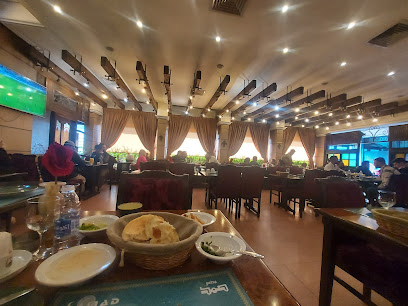
Chili House
Discover delicious chicken specialties at Chili House, Baghdad's favorite dining spot blending traditional flavors with modern flair.
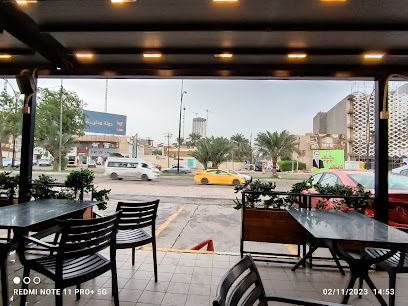
Haji Kaddouri Restaurant
Discover the rich flavors of Iraq at Haji Kaddouri Restaurant in Baghdad – where tradition meets taste in every dish.
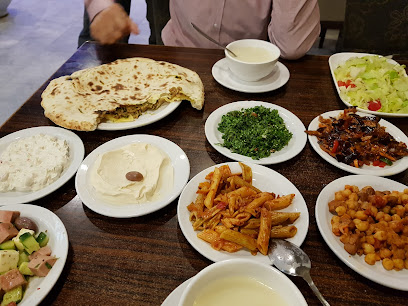
Naranj Restaurant
Discover authentic Syrian flavors at Naranj Restaurant in Baghdad - where culinary tradition meets modern dining elegance.
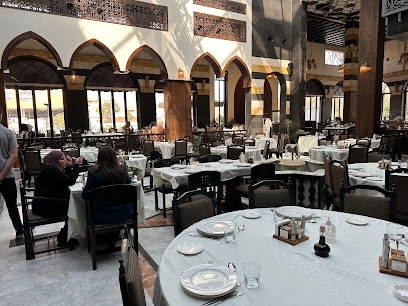
Jadiriyah Floating Restaurant
Savor exquisite Iraqi cuisine on a floating restaurant overlooking the Tigris River in Baghdad, offering stunning views and a vibrant atmosphere.
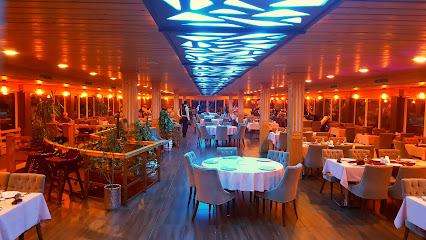
Guevara Restaurant & Cafe
Experience the vibrant flavors of Western cuisine at Guevara Restaurant & Cafe in Baghdad - where every meal is a celebration.
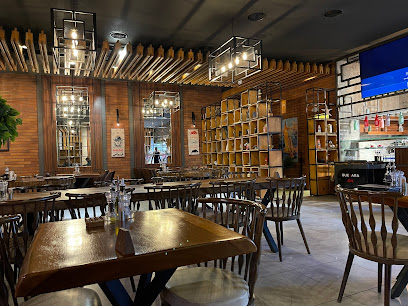
MAZAYA Restaurant
Discover the best Nuevo Latino cuisine at MAZAYA Restaurant in Baghdad - where flavors meet culture in a vibrant setting.
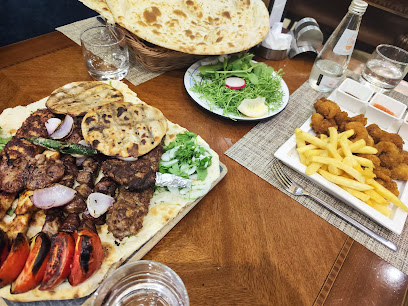
Beethoven Restaurant and Cafe
Discover Beethoven Restaurant and Cafe in Baghdad - where exquisite flavors meet warm hospitality in an inviting atmosphere.
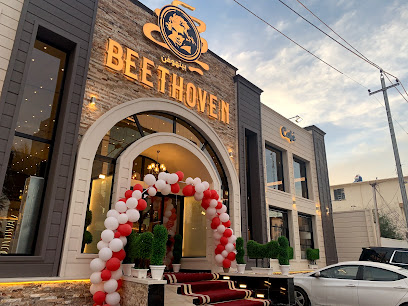
Darbunah
Experience authentic Iraqi flavors at Darbunah in Baghdad's Inner Karada - where tradition meets taste in a warm and inviting atmosphere.
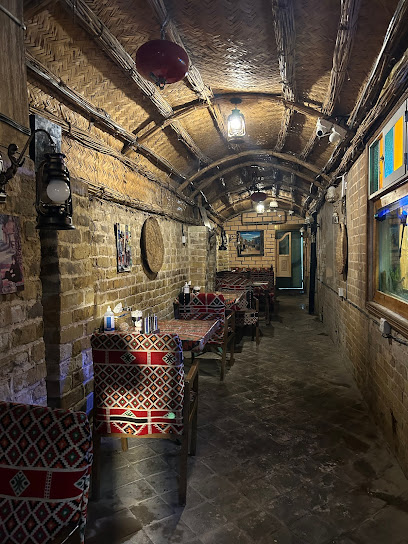
Al-Faisaliya Restaurant & Cafe
Experience the rich flavors of Middle Eastern cuisine at Al-Faisaliya Restaurant & Cafe in Baghdad's vibrant Outer Karrada district.
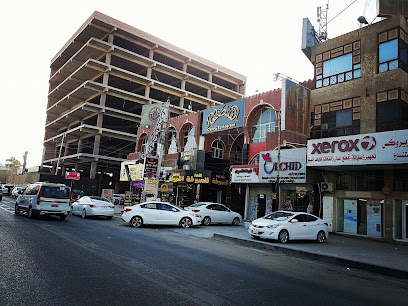
Azkadenya Restaurant
Savor authentic Turkish dishes in the heart of Baghdad at Azkadenya Restaurant – where tradition meets taste.
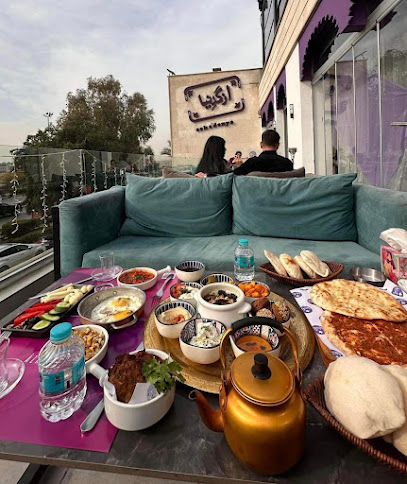
Markets, malls and hidden boutiques
Mansour Mall
Mansour Mall: A premier shopping and entertainment destination in Baghdad with diverse shops, dining, and fun for the whole family.
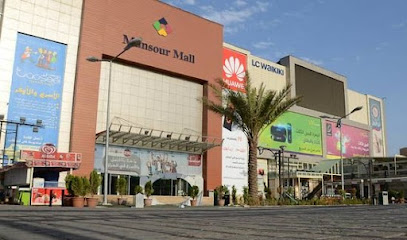
Baghdad Mall
Discover Baghdad Mall: a vibrant shopping and entertainment hub in the heart of Iraq's capital, blending modern retail with local culture.
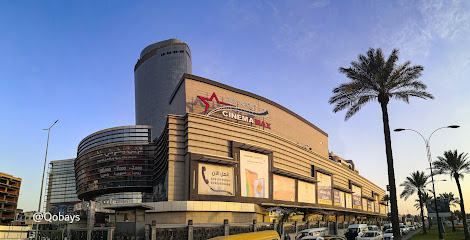
Babylon Mall
Discover Babylon Mall: A premier shopping and entertainment hub in Baghdad with diverse stores, dining, and family-friendly attractions.
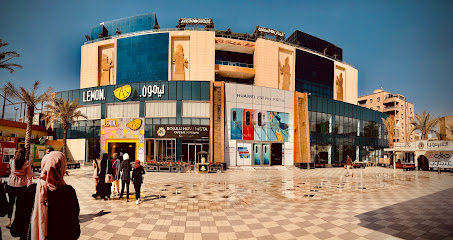
كلشي و كلاشي السيدية 2
Explore a captivating array of home goods and local culture at كلشي و كلاشي السيدية 2, a premier shopping destination in Baghdad.
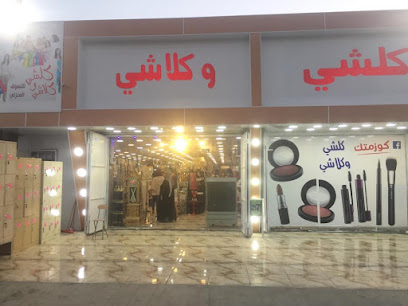
Iraq Mall
Explore Iraq Mall: Baghdad's premier shopping destination for a mix of local culture, modern retail, and culinary delights.
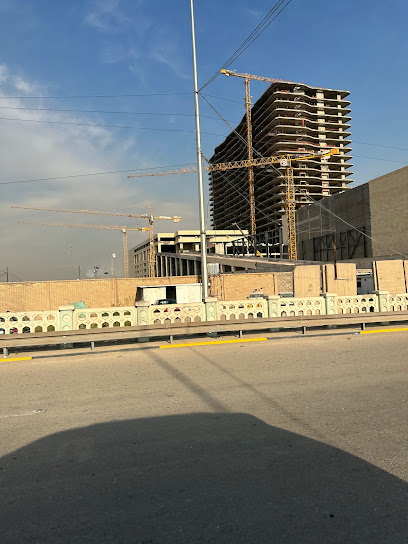
Burj Al Arab store
Explore cutting-edge electronics at Burj Al Arab Store in Baghdad, a top destination for tech enthusiasts seeking the latest gadgets.
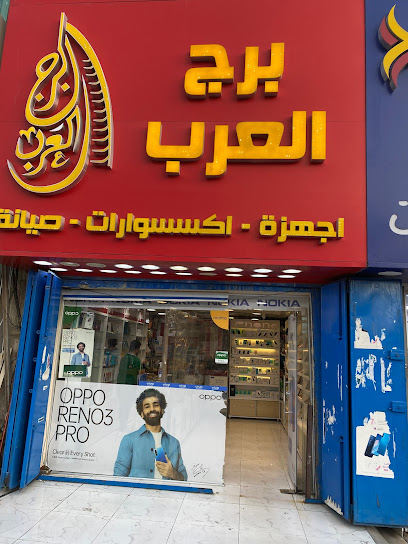
Baghdad Markets
Explore the vibrant Baghdad Markets, a hub of culture and commerce where local crafts, spices, and delicious street food await.
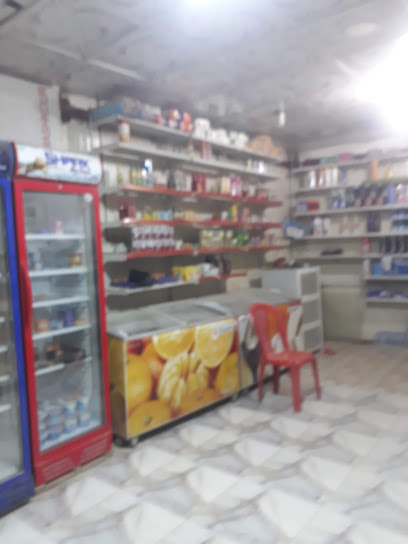
MINISO Babylon Mall
Experience the best of affordable shopping at MINISO in Babylon Mall, featuring stylish products for home and lifestyle in the heart of Baghdad.
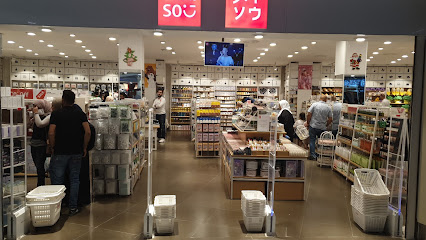
UOT STORE
Explore UOT Store in Baghdad for unique gifts and fashion accessories, showcasing the rich artistry of Iraqi culture.
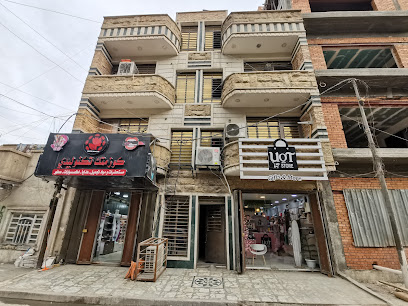
Amazon Baghdad
Discover the Amazon Baghdad, a vibrant shopping mall in the heart of the city offering retail, dining, and entertainment experiences for all.
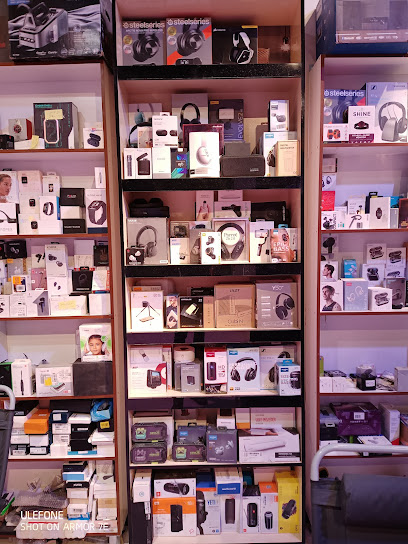
SOOQIRAQ سوق العراق
Explore SOOQIRAQ in Baghdad for a unique shopping experience filled with local treasures and a variety of products to suit every need.
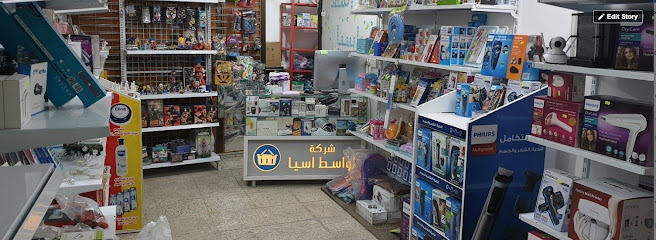
REDTAG - DEPARTMENT STORE
Explore REDTAG Department Store in Baghdad for an exceptional shopping experience featuring local and international brands in a vibrant setting.
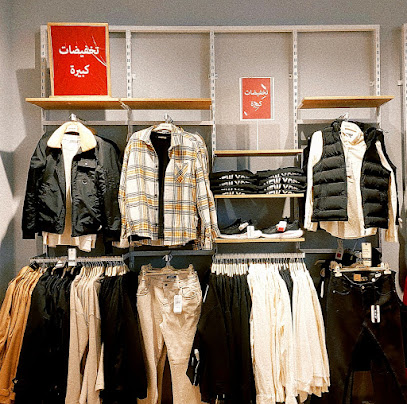
Nome Home Shopping
Explore Nome Home Shopping in Baghdad for an authentic shopping experience with local flavors and international products.

NIKE IRAQ
Discover the latest in athletic fashion at Nike Iraq, where quality meets style in the heart of Baghdad.
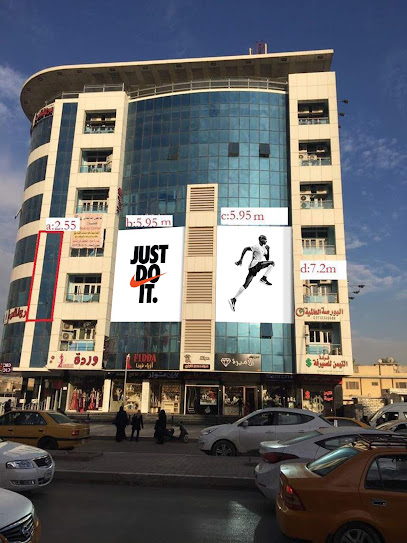
Kado gift shop
Explore Kado Gift Shop in Baghdad for a unique selection of local crafts and souvenirs that celebrate Iraq's rich cultural heritage.
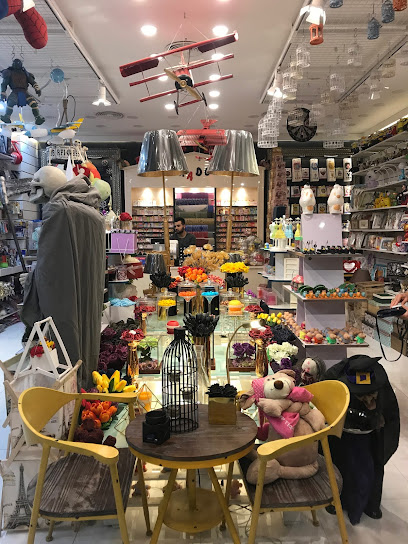
Essential bars & hidden hideouts
Irish pub
Experience the warmth of Irish hospitality in Baghdad's vibrant pub, where great food, drinks, and entertainment await.
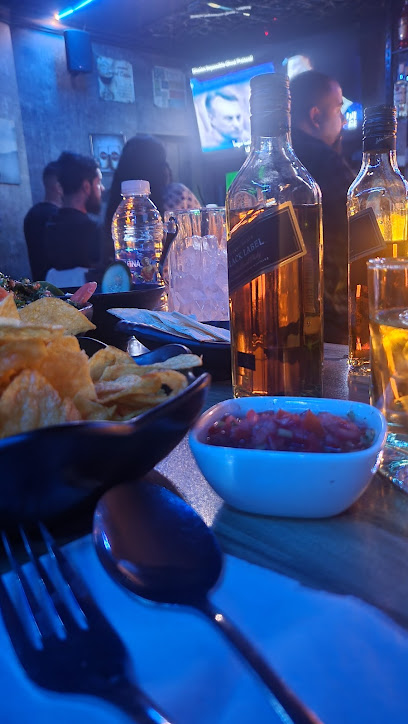
Alqosh Bar
Discover Alqosh Bar, a lively hotspot in Baghdad, blending local culture and vibrant nightlife for an unforgettable experience.
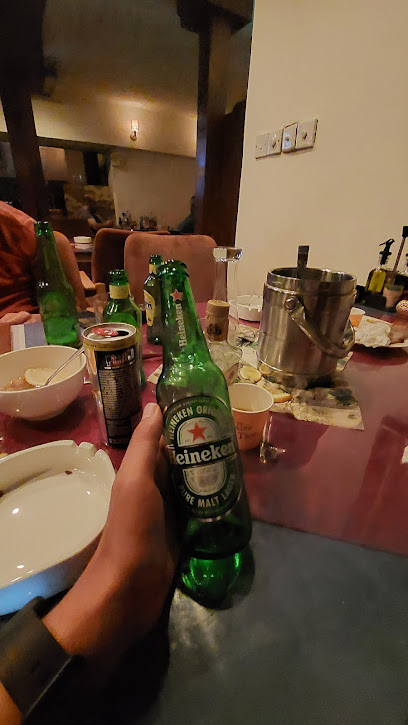
Solo bar
Experience the vibrant nightlife of Baghdad at Solo Bar, where local flavors meet international drinks in a lively atmosphere.
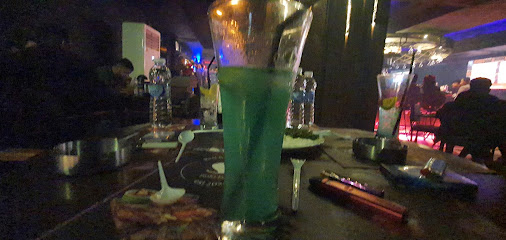
The Square meeting Bars
Experience the vibrant nightlife at The Square Meeting Bars in Baghdad, where locals and tourists unite for unforgettable evenings filled with laughter and culture.
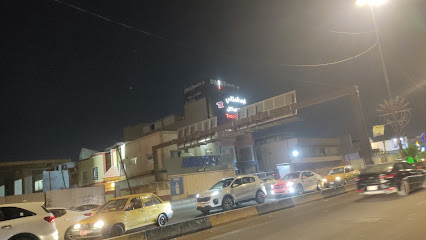
الحارثية
Discover الحارثية, a lively bar in Baghdad that embodies the vibrant nightlife and Iraqi hospitality, perfect for unwinding after a day of exploration.
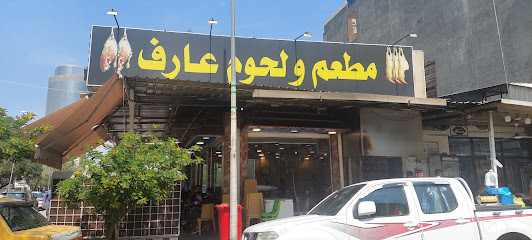
Mazen store
Discover Mazen Store, a lively bar in Baghdad, blending local flavors and international drinks in a vibrant atmosphere perfect for socializing.

صكار الكراغول
Discover the vibrant nightlife at صكار الكراغول, Baghdad's premier cocktail bar offering creative drinks and a lively atmosphere.

نادي للمشروبات الكحولية
Discover the ultimate nightlife experience in Baghdad at this stylish bar, offering crafted cocktails and a lively ambiance to enjoy with friends.

السعدون
Experience the lively atmosphere at السعدون, a must-visit bar in Baghdad for an unforgettable night out.

Bar
Experience the vibrant nightlife of Baghdad at this lively bar, perfect for socializing and enjoying a variety of drinks in a welcoming atmosphere.

Station Bar
Discover the vibrancy of Baghdad's nightlife at Station Bar, where local culture meets a welcoming atmosphere for an unforgettable experience.

مقهى
Explore مقهى in Baghdad, a lively bar that combines local culture with a vibrant nightlife experience for unforgettable evenings.

بغداد الجديدة
Experience the vibrant bar scene and rich culture of Baghdad Al-Jadida, where tradition meets modern nightlife in an unforgettable atmosphere.

قرجوخ
Experience the lively nightlife and cultural charm at قرجوخ, a must-visit bar in the heart of Baghdad, perfect for unwinding and socializing.

Local Phrases
-
- Helloمرحبا
[Marhaba] - Goodbyeوداعا
[Wada'an] - Yesنعم
[Naam] - Noلا
[La] - Please/You're welcomeمن فضلك
[Min fadlak] - Thank youشكرا لك
[Shukran lak] - Excuse me/Sorryعذرا
[A'ithrana] - How are you?كيف حالك؟
[Kayfa halak?] - Fine. And you?بخير. وأنت؟
[Bikhayr. Wa anta?] - Do you speak English?هل تتكلم الإنجليزية؟
[Hal tatakallam al'injlizia?] - I don't understandأنا لا أفهم
[Ana la afham]
- Helloمرحبا
-
- I'd like to see the menu, pleaseأريد أن أرى القائمة، من فضلك
[Arid an ara alqaimah, min fadlak] - I don't eat meatأنا لا أكل لحم
[Ana la akl lahm] - Cheers!صحتين!
[Sahatayn!] - I would like to pay, pleaseأود أن أدفع، من فضلك
[Aawad an adfa', min fadlak]
- I'd like to see the menu, pleaseأريد أن أرى القائمة، من فضلك
-
- Help!النجدة!
[Alnijdah!] - Go away!اذهب بعيدا!
[Izhab baedan!] - Call the Police!اتصل بالشرطة!
[Itsal bialshurta!] - Call a doctor!اتصل بطبيب!
[Itsal bitalib!] - I'm lostأنا ضائع
[Ana dhaa'ie] - I'm illأنا مريض
[Ana mareed]
- Help!النجدة!
-
- I'd like to buy...أريد أن أشتري...
[Arid an ashtari...] - I'm just lookingأنا فقط أتطلع
[Ana faqat atatala] - How much is it?كم سعره؟
[Kam si'ruh?] - That's too expensiveهذا غاليا جدا
[Hatha ghaliyan jiddan] - Can you lower the price?هل يمكنك خفض السعر؟
[Hal yumkinuk khafdh alsir?]
- I'd like to buy...أريد أن أشتري...
-
- What time is it?كم الساعة؟
[Kam alsaa'ah?] - It's one o'clockالساعة الواحدة
[Alsaa'ah alwahidah] - Half past (10)النصف بعد (10)
[Alnisf baed (10)] - Morningالصباح
[Alsubah] - Afternoonالمساء
[Almasa'] - Eveningالمساء
[Almasa'] - Yesterdayأمس
[Ams] - Todayاليوم
[Alyawm] - Tomorrowغدا
[Ghadan] - 1واحد
[Wahid] - 2اثنان
[Ithnan] - 3ثلاثة
[Thalatha] - 4أربعة
[Arba'a] - 5خمسة
[Khamsa] - 6ستة
[Sitta] - 7سبعة
[Sab'a] - 8ثمانية
[Thamaniya] - 9تسعة
[Tis'ah] - 10عشرة
[Asharah]
- What time is it?كم الساعة؟
-
- Where's a/the...?أين ...؟
[Ayna ...?] - What's the address?ما هو العنوان؟
[Ma huwa al'anaan?] - Can you show me (on the map)?هل يمكنك أن تريني (على الخريطة)؟
[Hal yumkinuk an tureeni (ala alkhareeta)?] - When's the next (bus)?متى يأتي الحافلة التالية؟
[Mata yaati alhafilat altaliat?] - A ticket (to ....)تذكرة (إلى ...)
[Tazkirah (ila ...)]
- Where's a/the...?أين ...؟
History of Baghdad
-
Founded in 762 AD by the Abbasid caliph Al-Mansur, Baghdad was strategically located along the Tigris River. Designed to be the capital of the Abbasid Caliphate, the city was intended to be a symbol of Islamic power and culture. The circular layout of the city, also known as the Round City, was unique for its time and included the caliph's palace at its center, surrounded by grand mosques and administrative buildings.
-
During the 8th to 13th centuries, Baghdad flourished as a center of learning and culture under the Abbasid Caliphate. Known as the 'Golden Age of Islam,' this period saw the establishment of the House of Wisdom, where scholars from various cultures gathered to translate and expand upon knowledge in fields such as science, mathematics, medicine, and philosophy. The city's bustling bazaars, libraries, and schools made it a beacon of intellectual and cultural development.
-
In 1258, Baghdad faced a catastrophic event when it was invaded by the Mongol Empire under Hulagu Khan. The city was sacked, and its libraries, including the House of Wisdom, were destroyed. This invasion marked the end of the Abbasid Caliphate and caused a significant decline in Baghdad's status as a cultural and intellectual hub. The devastation also led to a considerable loss of life and infrastructure.
-
In the 16th century, Baghdad came under the control of the Ottoman Empire. The city experienced periods of prosperity and decline during Ottoman rule, which lasted until the early 20th century. During this time, Baghdad served as an important administrative center, and the Ottomans invested in the city's infrastructure, including the construction of new buildings and the restoration of old ones. Despite being part of the larger Ottoman geopolitical landscape, Baghdad retained its unique cultural identity.
-
Following World War I and the dissolution of the Ottoman Empire, Baghdad became part of the British Mandate of Mesopotamia. In 1921, the Kingdom of Iraq was established under British influence, with Baghdad as its capital. This period saw significant modernization efforts, including the introduction of new educational institutions, healthcare systems, and infrastructural developments. The city began to expand beyond its historical boundaries and incorporated modern urban planning elements.
-
In 1958, the monarchy in Iraq was overthrown, and Baghdad became the capital of the newly established Republic of Iraq. This era was marked by rapid industrialization and modernization, though it also faced political instability and conflict. Significant architectural projects, such as the Baghdad Tower and the development of wide boulevards, reflected the city's modernization efforts. Baghdad continued to grow as a cultural, economic, and political center in the region.
-
The late 20th and early 21st centuries brought significant challenges to Baghdad, including the Iran-Iraq War, the Gulf War, and the US-led invasion in 2003. These conflicts resulted in extensive damage to the city's infrastructure and cultural heritage. Since then, efforts have been underway to rebuild and restore Baghdad. Despite ongoing challenges, the city remains a vibrant center of Iraqi culture and resilience, with ongoing projects aimed at revitalizing its historical sites and modern amenities.
Baghdad Essentials
-
Baghdad is accessible via Baghdad International Airport (BGW), which is located approximately 16 kilometers from the city center. Several international airlines offer flights to Baghdad. From the airport, you can take a taxi or arrange for a hotel shuttle to reach your destination. Alternatively, there are bus services available, but taxis are generally the preferred mode of transport for convenience and safety.
-
Within Baghdad, transportation options include taxis, buses, and private cars. Taxis are widely available and are a convenient way to get around. Make sure to negotiate the fare before starting your journey. Public buses are another option, though they can be crowded and less comfortable. For a more personalized experience, consider hiring a private car with a driver, which can be arranged through your hotel or a local travel agency.
-
The official currency in Iraq is the Iraqi Dinar (IQD). Credit cards are accepted in some hotels, restaurants, and larger shops, but it is advisable to carry cash, especially for smaller establishments and local markets. ATMs are available in Baghdad, but it is wise to withdraw sufficient cash for your needs. Currency exchange services are also available at the airport and in the city.
-
Baghdad has areas with varying levels of safety. It is advisable to stay in well-secured areas and avoid neighborhoods with high crime rates, such as Sadr City and certain parts of East Baghdad. Always stay vigilant, avoid walking alone at night, and keep an eye on your belongings. It is also recommended to stay updated on local news and follow any travel advisories issued by your home country.
-
In case of emergency, dial 104 for the police and 122 for medical emergencies. It is essential to have travel insurance that covers medical emergencies. Hospitals and medical facilities are available in Baghdad, but the quality can vary. For minor health issues, there are pharmacies where you can purchase over-the-counter medications. Ensure you know the location of your country's embassy or consulate in case you need assistance.
-
Fashion: Do dress modestly, especially when visiting religious sites. Avoid wearing revealing clothing. Religion: Do respect local customs and traditions. Always remove your shoes when entering a mosque. Public Transport: Do be respectful and give up your seat to elderly passengers. Don't eat or drink on public transport. Greetings: Do greet people with a handshake, but be mindful that some people may prefer not to shake hands with the opposite gender. Eating & Drinking: Do try local delicacies and accept food offerings graciously. Don't refuse hospitality, as it is considered impolite.
-
To experience Baghdad like a local, visit the bustling markets such as the Al-Mutanabbi Street book market and the Shorja market for a taste of local shopping. Engage with locals, as they are often friendly and willing to share stories about the city's history and culture. Don't miss visiting the historic Al-Mustansiriya School and the beautiful Al-Kadhimiya Mosque. For a unique experience, take a walk along the Tigris River and enjoy the local cafes and restaurants.
Nearby Cities to Baghdad
-
Things To Do in Karbala
-
Things To Do in Najaf
-
Things To Do in Kirkuk
-
Things To Do in Sulaymaniyah
-
Things To Do in Amara
-
Things To Do in Erbil
-
Things To Do in Mosul
-
Things To Do in Arar
-
Things To Do in Dohuk
-
Things To Do in Basra
-
Things To Do in Jahra
-
Things To Do in Sakakah
-
Things To Do in Kuwait City
-
Things To Do in Hawalli
-
Things To Do in Farwaniya
















